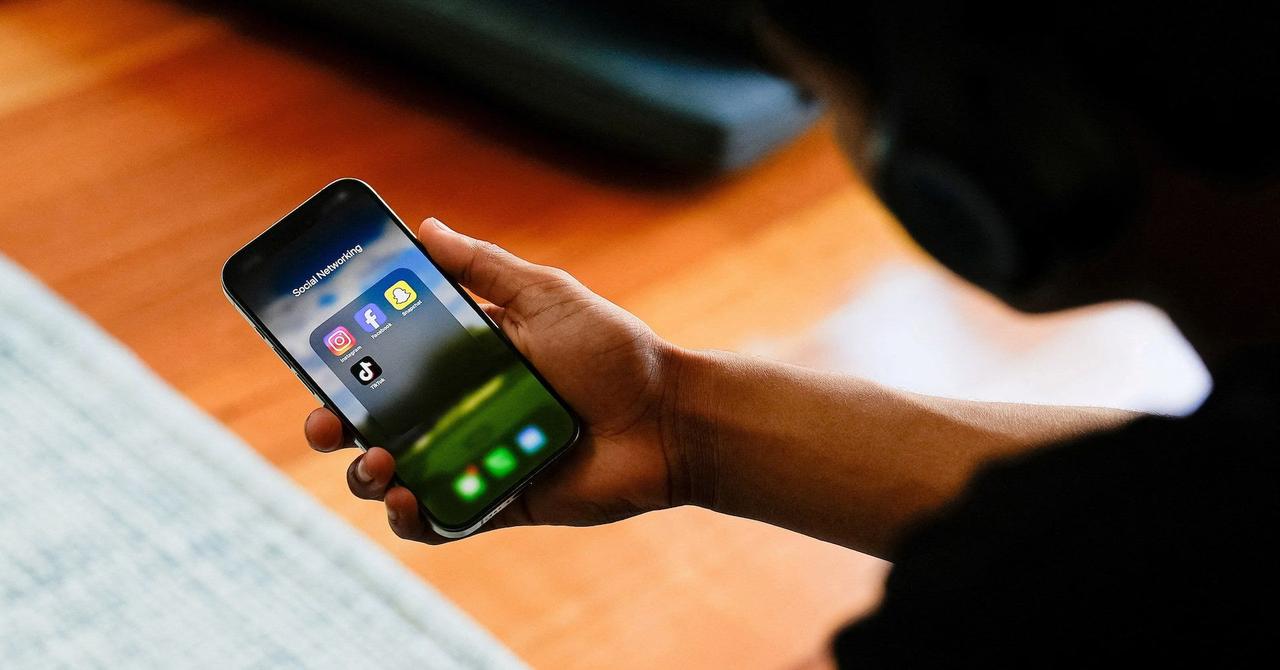Australia's Social Media Age Assurance Trial: Effective Solutions Found, But No One-Size-Fits-All Approach
2 Sources
2 Sources
[1]
Report on social media age assurance trial says there is not a one-size-fits-all solution
Australia's government trial has found age-assurance for its under-16 social media ban can be done effectively and protect privacy, but there is not a one-size-fits-all model. The report, from an independent company and released in full, also warns continued vigilance is needed on privacy and other issues. It found some providers, in the absence of guidance, were collecting too much data, over-anticipating what regulators would require. The ban on under 16s having their own social media accounts has been passed by parliament and comes into effect in December. It covers a wide range of platforms, including Facebook, Instagram, TikTok, X, and YouTube (which was recently added). The measure is world-leading, and has been very controversial. One issue has been the degree of likely reliability of age verification. The trial looked at various age assurance methods, including AI, facial analysis, parental consent and identity documents. The methods were judged on accuracy, usability and privacy grounds. More than 60 technologies were examined from 48 age assurance vendors. The report concluded age assurance systems "can be private, robust and effective." Moreover there was "a plethora" of choices available for providers, and no substantial technological limitations. "But we did not find a single ubiquitous solution that would suit all use cases, nor did we find solutions that were guaranteed to be effective in all deployments." Instead, there was "a rich and rapidly evolving range of services which can be tailored and effective depending on each specified context of use." The age assurance service sector was "vibrant, creative and innovative," according to the report, with "a pipeline of new technologies." It had a robust understanding of the handling of personal information and a strong commitment to privacy. But the trial found opportunities for technological improvements, including ease of use. On parental control systems, the trial found these could be effective. "But they serve different purposes. Parental control systems are pre-configured and ongoing but they may fail to adapt to the evolving capacities of children including potential risks to their digital privacy as they grow and mature, particularly through adolescence. "Parental consent mechanisms prompt active engagement between children and their parents at key decision points, potentially supporting informed access." The trial found while the assurance systems were generally secure, the rapidly evolving threat environment meant they could not be considered infallible. They needed continual monitoring, improvement and attention to compliance with privacy requirements. Also, "We found some concerning evidence that in the absence of specific guidance, service providers were apparently over-anticipating the eventual needs of regulators about providing personal information for future investigations. "Some providers were found to be building tools to enable regulators, law enforcement or coroners to retrace the actions taken by individuals to verify their age which could lead to increased risk of privacy breaches, due to unnecessary and disproportionate collection and retention of data." Communications Minister Anika Wells said, "While there's no one-size-fits-all solution to age assurance, this trial shows there are many effective options and importantly that user privacy can be safeguarded." This article is republished from The Conversation under a Creative Commons license. Read the original article.
[2]
Australia's social media ban can be enforced 'effectively', official report finds
Australia's incoming ban of under-16s on social media can be "privately, effectively and efficiently" enforced, an official report has found. The Australian government is banning young teenagers from social media from December and commissioned the report to look into how the new rules could be enforced. It explored a number of methods for verifying users' ages, including AI facial age estimation, ID checks and parental consent. The report found that although there was no "one-size-fits-all" approach, there were a "plethora of approaches that fit different use cases in different ways". "This is the most comprehensive and independent evaluation of age assurance we've seen," said Julie Dawson, co-chair of the Age Verification Providers Association (AVPA). "It shows the technology works, that it can be privacy-preserving and that it is mature enough to give policymakers real confidence." Although the findings were celebrated by the age verification industry, the report did find inequalities in how the tech guessed the ages of some groups of people. Non-Caucasian, older and female-presenting users faced "reduced accuracy" in certain scenarios, and the fact that indigenous people were underrepresented in training data "remains a challenge", according to the report. Teenagers around the age of 16 also faced higher levels of inaccuracy, with 8.2% of 16-year-olds being rejected when they tried to verify they were 16. Read more from Sky News: Rudy Giuliani rushed to hospital after car crash Afghanistan earthquake kills hundreds - all we know so far In those cases, the user would likely be asked to verify their age another way, either with their ID or with parental consent, according to the report. "It seems like there are a lot of variations in accuracy," said Justine Humphry from the University of Sydney, who specialises in online safety. "That variation is concerning, with the tight schedule for the introduction of a system that will need to be robust and working by the end of this year," she said. According to the law that passed last November, social media platforms will be liable for fines of up to AUS$50m (£25m) if they don't prevent children younger than 16 from holding accounts. The technology explored in the report is the same used by many internet providers in Britain since Ofcom's new internet safety rules came into force. The chief executive of Yoti, one of the companies already offering widespread age verification, called the report's results "very bad news for many opponents who have persistently claimed that even leading safety tech check methods are inaccurate, immature, insecure, privacy chilling & discriminatory."
Share
Share
Copy Link
An Australian government trial has found that age assurance methods for enforcing a social media ban on under-16s can be effective and privacy-protective, but there's no universal solution. The report highlights various technologies and approaches, emphasizing the need for tailored solutions and ongoing vigilance.
Australia's Groundbreaking Social Media Age Assurance Trial
Australia has taken a significant step towards implementing its world-leading ban on under-16s having their own social media accounts. A comprehensive government trial has revealed that effective age assurance methods can be employed while protecting user privacy, though no single solution fits all scenarios
1
.Key Findings of the Trial
The trial, conducted by an independent company, examined over 60 technologies from 48 age assurance vendors. It concluded that age assurance systems "can be private, robust and effective"
1
. The report highlighted a "plethora" of choices available for providers, with no substantial technological limitations.Julie Dawson, co-chair of the Age Verification Providers Association (AVPA), praised the trial as "the most comprehensive and independent evaluation of age assurance we've seen"
2
.Diverse Approaches to Age Assurance
The trial explored various age assurance methods, including:

Source: Tech Xplore
- AI and facial analysis
- Parental consent mechanisms
- Identity document verification
These methods were evaluated based on accuracy, usability, and privacy considerations. The report emphasized that while there isn't a universal solution, there is "a rich and rapidly evolving range of services which can be tailored and effective depending on each specified context of use"
1
.Challenges and Areas for Improvement
Despite the overall positive findings, the trial identified several challenges:
- Accuracy disparities: Non-Caucasian, older, and female-presenting users faced "reduced accuracy" in certain scenarios
2
. - Indigenous representation: The underrepresentation of indigenous people in training data remains a challenge
2
. - Age-specific inaccuracies: 8.2% of 16-year-olds were incorrectly rejected when trying to verify their age
2
.
The report also noted opportunities for technological improvements, particularly in ease of use
1
.Related Stories
Privacy Concerns and Data Collection
While the age assurance systems were generally found to be secure, the report warned of potential privacy risks. Some providers were collecting excessive data, anticipating future regulatory requirements. This could lead to increased risk of privacy breaches due to unnecessary and disproportionate data collection and retention
1
.
Source: Sky News
Implementation and Future Outlook
The ban on under-16s having social media accounts is set to come into effect in December, covering platforms such as Facebook, Instagram, TikTok, X, and YouTube. Social media companies face potential fines of up to AUS$50m (£25m) for non-compliance
2
.Communications Minister Anika Wells emphasized that while there's no one-size-fits-all solution, the trial demonstrates many effective options that can safeguard user privacy
1
.As Australia prepares to implement this groundbreaking policy, the findings of this trial provide valuable insights for policymakers and tech companies alike. The report underscores the need for continued vigilance, ongoing improvements, and a tailored approach to age assurance in the rapidly evolving digital landscape.
References
Summarized by
Navi
[1]
Related Stories
Australia Pioneers 'Minimally Invasive' Age Checks for Teen Social Media Ban
16 Sept 2025•Policy and Regulation

Australia to Trial Age Assurance Technologies for Online Safety
03 Dec 2024•Policy and Regulation

Australia's eSafety Commissioner Pushes for YouTube Inclusion in Under-16 Social Media Ban
24 Jun 2025•Policy and Regulation

Recent Highlights
1
Google Gemini 3.1 Pro doubles reasoning score, beats rivals in key AI benchmarks
Technology

2
Meta strikes up to $100 billion AI chips deal with AMD, could acquire 10% stake in chipmaker
Technology

3
Pentagon threatens Anthropic with supply chain risk label over AI safeguards for military use
Policy and Regulation





